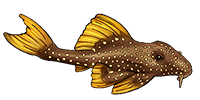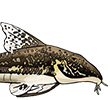L27 bacterial infection
L27 bacterial infection
Hi, I picked up a 5" l27 about 3 weeks ago. After a few days in the tank it develops some white patches with some fungus spots. I immediately treat with Metronidazole and did daily water change. The fungus still seems to be hanging on. Can someone advis on another course of action? Thanks
-
mcaquatic
- Posts: 321
- Joined: 05 Jan 2013, 19:12
- My cats species list: 67 (i:0, k:0)
- My Wishlist: 1
- Spotted: 34
- Location 1: USA
- Location 2: somerville, NJ
Re: L27 bacterial infection
Metronidazole is an antibiotic. It does not have anti fungal properties.
-
Linus_Cello
- Posts: 421
- Joined: 19 Jun 2009, 21:43
- My cats species list: 1 (i:0, k:0)
- Spotted: 1
- Location 2: Washington DC
Re: L27 bacterial infection
I'm guessing that you will want methylene blue handy, and maybe malachite green and salt. I defer to someone who can make a positive ID on what malady your pleco is suffering from. The following is a link to another thread that may be helpful:
http://www.planetcatfish.com/forum/view ... 72#p176372
http://www.planetcatfish.com/forum/view ... 72#p176372
Re: L27 bacterial infection
Thanks for the replies. That thread was very helpful. I am able to get my hands on quick cure which has malachite green, so I will probably go that route.
I was very surprised that my large daily water changes had little effect on the plecos condition
I was very surprised that my large daily water changes had little effect on the plecos condition
-
mcaquatic
- Posts: 321
- Joined: 05 Jan 2013, 19:12
- My cats species list: 67 (i:0, k:0)
- My Wishlist: 1
- Spotted: 34
- Location 1: USA
- Location 2: somerville, NJ
Re: L27 bacterial infection
also can you get the fish out into a quarantine tank? the mal blue/green will stain your tank and everything in there. Plus the fish will be easier to treat.
-
Linus_Cello
- Posts: 421
- Joined: 19 Jun 2009, 21:43
- My cats species list: 1 (i:0, k:0)
- Spotted: 1
- Location 2: Washington DC
Re: L27 bacterial infection
Yes, treat the fish, not the tank.mcaquatic wrote:also can you get the fish out into a quarantine tank? the mal blue/green will stain your tank and everything in there. Plus the fish will be easier to treat.
Re: L27 bacterial infection
Been treating with malachite green and the fungus is definitely going away. Thanks for the advice. I have a picture of the biggest fungus spot he had, and now that the fungus is almost cleared up it looks like an open wound. Do I continue to treat the fungus, or stop and use melofix to help heal the wound? I do have the time to do daily water changes so I will be abler to keep the water clean. Thanks for any help
-
mcaquatic
- Posts: 321
- Joined: 05 Jan 2013, 19:12
- My cats species list: 67 (i:0, k:0)
- My Wishlist: 1
- Spotted: 34
- Location 1: USA
- Location 2: somerville, NJ
Re: L27 bacterial infection
wow looks to clearing nicely, keep up with the water changes
Re: L27 bacterial infection
Have u tried treating for velvet slime having trouble with tap water when performing water change. Used pond water (organic aged water when topping back up ),Treated with velvet slime twice in a month problem seems to have gone.
- Barbie
- Expert
- Posts: 2964
- Joined: 03 Jan 2003, 23:48
- I've donated: $360.00!
- My articles: 1
- My images: 15
- My catfish: 2
- My cats species list: 58 (i:0, k:0)
- Spotted: 8
- Location 1: Spokane, WA
- Location 2: USA
Re: L27 bacterial infection
Noz I'm not quite clear, were you treating with a medication for velvet? If so, that's exactly what the malachite green mentioned would have been for?
Barbie
Barbie




